Food Technology / Catering
At Co-op Academy Southfield, the intent of our food technology curriculum is to apply the principles of nutrition and healthy eating, preparing students for later life by developing the confidence and skills to be as independent with food technology as possible.
“It is essential for all children and young people to have good education on food and nutrition, so that they are equipped with the necessary skills to cook and feed themselves well and keep healthy.” - Frances Meek, Senior Education Officer, British Nutrition Foundation 2020
We want our students at Co-op Academy Southfield to benefit from a food technology curriculum that provides sequenced learning, knowledge, skills, and experiences across all Key Stages. This curriculum will celebrate multicultural foods and show how different cultural foods influence our everyday food choices.
Students will learn to identify, taste, and prepare a wide variety of ingredients and healthy recipes that reflect cultural diversity. They will select and safely use appropriate equipment while being mindful of their own safety. Students will choose ingredients considering nutrition, function, taste, cost, seasonality, and sustainability. They will plan, prepare, and cook simple dishes and understand the importance of eating together.
This approach will vary across different Key Stages but will be sequenced to ensure food technology builds on prior skills and knowledge. This sequenced learning will be revisited throughout the Key Stages to foster a concrete understanding of food technology and food preparation.
Assessment:
In Catering, students are expected to either complete one "Evidence for Learning" (EFL) entry per term or undertake a summative assessment project. The EFL entry should document the student's progress against the skills progression steps, reflecting their development in culinary skills, food safety knowledge, and understanding of nutritional concepts. Alternatively, the summative assessment project will test their ability to demonstrate the learning of the term through a practical cooking assignment or menu planning project where assessments can be captured on an assessment tracking sheet. Both assessment methods aim to provide a thorough overview of student progress and competence in Catering.
From Food Technology in Key Stages 3 and 4, to Catering in Key Stage 5
|
|
Autumn |
Spring |
Summer |
|
Year 8 My Amazing Human Body |
Super Snack Heroes: Fun and Healthy Choices Eatwell Guide |
Food’s Magic Journey: From Farm to Plate Sorting Seasons Growing |
Fruit and Veggie Adventures |
|
Year 9 My Voice, My Choice |
Fantastic Food Explorers 5 a day Food & drink Healthy body |
Food Detectives: Solve the Mystery! Places Animal or plant? Food origin |
Grains Galore |
|
Year 10 Risky Business |
Super Power Foods: Fuel Your Fun! Choices, Eatwell, 5 a day |
Farmers’ Tales: How Food Grows Sorting Seasons Growing |
Dairy Delights |
|
Year 11 Bradford, Britain and Beyond |
Superfoods: How They Keep Us Strong Diet Eatwell Energy |
Food Quest: Where Does It Come From? Farm & processing Food origins World foods |
Super Snacks: Power of Nuts and Seeds |
|
Year 12 My ambitions and aspirations |
Snack Attack! Tasty and Healthy Choices Nutrients Digestion Cooking for health |
Food Factory: How Raw Food Becomes Yummy! Farm & processing Food origins World foods |
Protein Powerhouses |
|
Year 13 I am an entrepreneur |
Building Balanced Plates Energy Nutrients Digestion |
Food Miles: How Far Does It Travel? Places Animal or plant? Food origin |
Awesome Oils and Butters |
|
Year 14 My life beyond Southfield |
Happy Foods: Eating for Joy Cooking for Health, Energy Eatwell |
World Food: How Food Travels the Globe |
Farming & processing Food origins World food |
